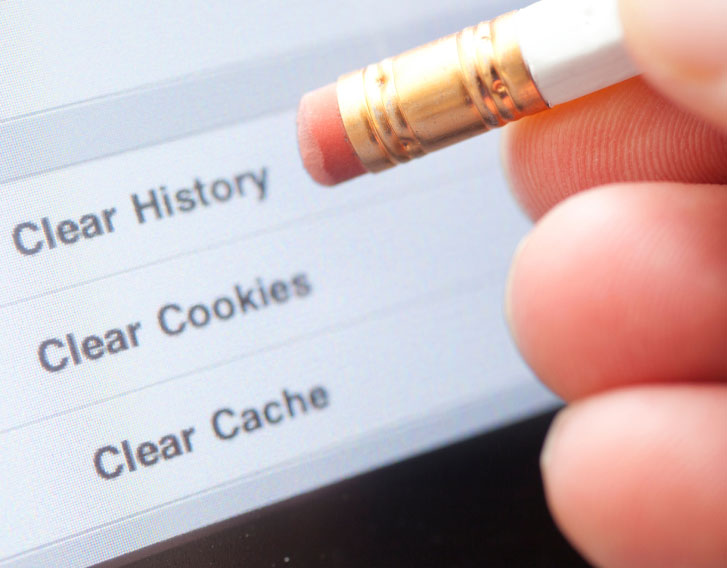Computer health
What Really Happens to Deleted Files on Your Devices?
Wouldn’t it be nice if all the unpleasant moments in life could simply be deleted?
Like the time you showed up still in your pajamas for a noon video call with your boss thinking your camera was off…but it wasn’t. Or that time your dog dug up the neighbor’s newly landscaped yard…and they caught the entire incident on their porch cam.
Awkward.
But what about when you mistakenly delete something and instantly wish you hadn’t?
Such as the big work project you’ve been grueling over for weeks only to hit the delete key by mistake. Or, what about the Great American Novel you’ve been crafting for the last decade of your life?
While these scenarios could make for a bad day at the least, there’s actually a much worse scenario that could play out.
What if you deleted a file or picture containing sensitive information that you thought was gone forever, only to find out that it wasn’t completely deleted in the first place?
Surprisingly, that’s the norm when it comes to the average deleted file on your computer.
Your ‘Delete’ button isn’t as final as you think it is
Most people think that when they click ‘delete’ that a file or document is gone for good.
Unfortunately, that’s not the case.
It may be ‘out of sight, out of mind,’ but it’s still sitting on your computer’s hard drive.
When you delete something on your computer, it goes into your Trash or Recycle Bin. While it may be hidden from plain view, that deleted file still exists. You’ve basically moved it from one place on your computer to another that’s not clearly visible.
It’s not much different than throwing paperwork in your trash. Anyone can go through your trash and retrieve those items.
That might be a big relief if you deleted something you didn’t mean to or if those files only consist of past grocery lists or an old college paper. But what if it’s something more sensitive?
Those deleted files could also include photos, tax returns, pay stubs or bank statements.
Should you care if documents aren’t truly deleted?
It depends on the document and whether it could come back to haunt you.
If it doesn’t contain any personal information, then it’s likely not a big deal. But if it includes any type of financial, legal or medical data, there is a potential risk.
Most importantly, you could be leaving your data vulnerable to hackers or cybercriminals.
But how do you know what’s okay to delete and what isn’t?
How to determine what should be deleted on your computer
If the document, file or image isn’t personal in nature or valuable to another party, it should be adequate just to delete it.
If the information does have personal data attached to it, you should ask yourself the following:
- Is this something I could need in the future?
- Does it contain information that could damage or risk my reputation if fallen into the wrong hands?
- Would I react negatively if someone I didn’t know accessed the information?
If you can confidently answer ‘no’ to those questions, then it should be fine to delete. If you can’t reply ‘no’ to all of them, you should take further precautions.
What can happen if sensitive data is left on your computer?
If sensitive data is left on your computer, it can be dangerous in several scenarios.
If you lend your computer to someone else, they can still retrieve those files. Whether it’s a friend, family member or coworker, there are probably files or images you’ve deleted that you don’t want them to have access to.
What if you’re traveling and accidentally leave your laptop behind on the plane or at a hotel? If someone has access to it, then they have the potential to access any files both visible and hidden.
You could also end up selling or donating your computer. Those ‘deleted’ files could still be lurking about and found by a tech-savvy person.
But what if you don’t travel with your computer or don’t lend it to anyone?
Believe it or not, the sensitive data located in your deleted files are still very much at risk.
Thanks to hackers and cybercriminals, it can be a major security issue for your personal information.
How to remove deleted files permanently and protect your private data
Numerous eraser programs exist for both PCs and Macs if you decide to permanently delete files from your computer. You’ll want to ensure you’ve saved any pertinent information or backed up data as those programs are designed to completely wipe hard drives clean. Retrieving any lost data could be expensive or downright impossible.
So, what do you do if you don’t want to wipe your hard drive clean but want to protect valuable data?
Through one of our AOL subscriptions, you can gain access to programs like System Mechanic or Norton™ Online Security to de-junk your PC or help protect you from online threats.
As both of these programs don’t protect against every threat that exists, you will want to exercise caution. Follow the tips in this article to help prevent risks to your valuable data due to deleted files.
Oops! How to get back files you accidentally deleted
We’ve all been there - you’re going through cleaning up your computer, feeling great, and months down the road you realized you may have accidentally deleted an important file or photo. Luckily, there are tools to help you recover these in a quick and easy way. Search & Recover is able to recover accidentally deleted files, photos, songs and more from USB thumb drives, digital cameras, SD cards and hard drives.


